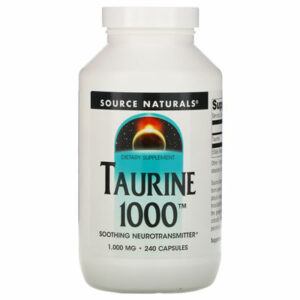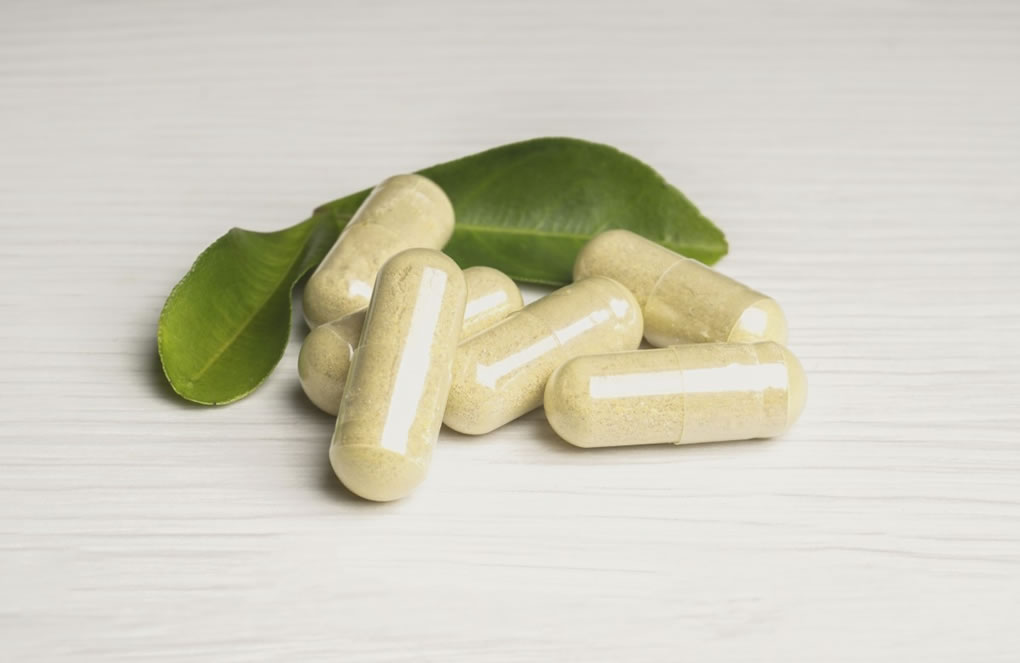Taurine is the most abundant thiamine-containing amino acid in mammalian body tissues (approximately stored in the brain, immune cells, retina, and internal organs). It is considered to be a conditionally essential amino acid. Functions include cell osmotic pressure regulation, bile salt formation, calcium flow regulation, antioxidant, anti-inflammatory, and stable cell membranes.
Do you know the benefits of taurine supplements?
Although Taurine is not necessary for protein, it will require a large amount to meet the need of the body under certain conditions (such as premature babies, chronic liver disease, heart or kidney failure).
The human body produces a small amount of Taurine, and most of it is ingested through food. Natural sources include meat, poultry, dairy products, and other foods, and plant sources are rare.
Table of Contents
- What are the benefits recommended by Taurine?
- Are there any side effects of Taurine?
- Precautions
- Where to buy Taurine recommended by most people?
What are the benefits recommended by Taurine?
1. Good for heart failure
Heart failure is often caused by abnormalities in myocardial structure or function, which prevents the ventricle from efficiently filling and outputting blood. It mainly occurs in the elderly, coronary heart disease, hypertension, and diabetes patients.
The main symptoms are frequent shortness of breath or difficulty breathing, swollen veins in the feet, legs, abdomen, and neck.
A double-blind controlled study (12-week, 16 patients with heart failure caused by coronary heart disease) pointed out that supplementing Taurine can help improve myocardial oxygen consumption, electrocardiogram indicators, exercise capacity and improve blood Taurine levels.
For patients, these clinically significant numerical improvements represent improvements in physical function, quality of life, and survival rate.
Another randomized controlled study (for 2 weeks, for patients with heart failure) found that supplementation with Taurine had anti-atherogenic and anti-inflammatory (C-reactive protein and platelet) effects.
*Summary: Taurine is positive for heart failure, but due to the small number of related research samples, it still needs further confirmation.
2. Beneficial symptoms of hepatitis
Hepatitis generally refers to the sudden or chronic inflammation of the liver due to factors such as viruses, drugs, toxins, alcohol, or immune disorders. In particular, hepatitis B and C, which are infected by blood viruses, are the most common. Fibrosis, cirrhosis, and even hepatocellular carcinoma.
A controlled study (for 4 months, targeting 24 patients with hepatitis C) pointed out that compared with placebo, oral Taurine helps to improve liver injury index (ALT and AST), oxidative stress index (thiobarbituric acid relative substances) and Blood lipids (cholesterol and triglycerides).
Another controlled study (a period of 3 months, targeting 30 patients with liver damage caused by chronic alcoholism) also pointed out that oral Taurine can help improve various clinical indicators, such as ALT, AST, triglyceride, cholesterol, TBARS, It can also promote enzymes that are beneficial to alcohol metabolism: alcohol dehydrogenase and alcohol dehydrogenase (ALDH).
*Summary: The antioxidant properties of Taurine may slow down the liver damage caused by hepatitis, but more research is needed to confirm it.
3. Reduce the incidence of stroke
Stroke is the number one cause of disability. After 55 years of age, the incidence rate will increase by multiples every 10 years. It is estimated that there are about 800,000 stroke cases in the United States each year, of which 600,000 are the first occurrence. Factors include high blood pressure, high blood fat, diabetes and smoking.
A prospective case-control study (14,274 white women) indicated that there was no significant association between blood Taurine concentration and stroke events (no protective effect).
However, after further investigation, it was found that the blood Taurine values of non-smokers had an inverse relationship with stroke events, indicating that Taurine can bring benefits to some ethnic groups.
*Summary: There is no obvious correlation between the level of Taurine in the blood and the incidence of stroke, but it may be possible to see benefits in some ethnic groups, and more research is still to be investigated.
4. Hypolipidemic
Hyperlipidemia is the most commonly found abnormal condition in health examinations and is also the leading cause of atherosclerosis and coronary heart disease.
It is estimated that about 11.7% of the 20-39 age group has cholesterol problems, and it is more obvious after the age of 40. It is increased to 41.2%. Because there is no obvious discomfort, about half of the patients did not take the appropriate treatment, causing future heart attacks. The probability of vascular disease increases
A randomized double-blind controlled study (a 7-week, 30 overweight, and obese students) pointed out that oral Taurine, in addition, to help reduce triacylglycerol and atherosclerosis index (TC/HDL ratio), can reduce weight.
The underlying mechanism may be related to the activated cholesterol hydroxylase (7 alpha-hydroxylase) possessed by Taurine, regulating the activity of low-density lipoprotein receptors, and promoting the production of apolipoprotein A1.
*Summary: Taurine has a hypolipidemic effect, but related research is still limited and needs more empirical confirmation.
5. Reduce chemotherapy side effects
Chemotherapy is the most common treatment for cancer, but side effects and toxicity to specific organs may occur during treatment, which often reduces the patient’s cooperation and hinders the progress of treatment.
The most common side effects of chemotherapy are nausea and vomiting. Depending on the degree, malnutrition, dehydration, and electrolyte metabolism imbalance may occur.
A randomized, double-blind controlled study (6 months, for 40 patients with acute lymphoblastic leukemia) pointed out that compared with placebo, supplementation of Taurine can help reduce nausea, vomiting, or smell and taste disorders caused by chemotherapy, can also reduce fatigue.
The underlying mechanism is related to Taurine’s inhibition of nerve conduction substances, changes in muscle metabolism, and reduction of proinflammatory hormone disorders.
*Summary: Taurine may reduce the side effects of chemotherapy and improve the quality of life of patients.
Are there any side effects of Taurine?
For most people, Taurine is an extremely safe ingredient to use at the proper dose, without any significant side effects.
If you want to replenish Taurine due to various medical conditions, it is recommended to consult local qualified medical personnel before use. Ingestion of nutrients from a natural diet is still the first priority.
Precautions
Do not use for pregnant women, nursing mothers, or those with poor liver and kidney function (because the relevant safety is unknown).
Please use with caution in patients with bipolar disorder, because some patients have experienced manic symptoms after drinking excessive amounts of Taurine-containing functional drinks (but it is unknown whether it is related to other ingredients, such as caffeine or inositol).
Where to buy Taurine recommended by most people?
In recent years, food safety problems in various countries have exploded, and it is not healthy but black-hearted products that everyone spends on. Therefore, European and American products with relatively strict quality control have become popular products.
And iHerb.com is a large-scale medical cosmetics e-commerce company in the United States. It has a high satisfaction rate of 97% in the evaluation of Google customers. It provides global home delivery so that you can buy it without risking buying fakes through purchasing high-quality health products.

